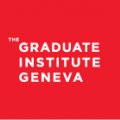(Source: Graduate Institute Geneva)
We learned of a call for papers
for an interdisciplinary conference on the politics of finance at the Graduate
Institute in Geneva.
CALL FOR PAPERS
In July 1964, in the aftermath of
the military coup which deposed President João Goulart, creditors at the Hague
Club approved the Brazilian officials request for rescheduling its debts. The
roaring inflation under the left-wing government cost the sympathy of its
creditors, who considered the unpopular policy by the new general in power,
Castelo Branco, to restore economic order with credit curbs, cuts in state
spending and increased taxation with a kindlier eye. As The Economist
summarized, “Creditors Prefer Generals”. (The Economist, July 11, 1964). About
a decade later, when the Economics Minister of Argentina’s military José
Alfredo Martínez de Hoz, came back from his world tour to drum up loans to
service the $1.2 billion in loans that came due over the following months, the
magazine Euromoney reported that the minister had managed to re-establish in a
few months an essential part of Argentina's image: credibility (Euromoney,
September 1976).
As was the case with other
developing countries in Latin America and elsewhere, Brazil and Argentina had
been largely cut off by foreign creditors during the previous democratic
regime, before becoming a hot destination once the military regime that came to
power committed to orthodox monetary and fiscal policies. Democracy and
international finance were at the crossroads, as these moments have indicated.
This interdisciplinary conference, to be held at the International History Department, Graduate Institute Geneva, on 18 - 19 June 2020, invites scholars in Economics, History, Sociology, Political Science and Legal Studies at different career stages to examine critically sovereign creditworthiness, credibility and reputation. In doing so, it attempts to initiative a scholarly dialogue on the political and cultural aspects of banking practices based on ‘trust’, and the relationship between politics and banking.
Contributions might address, but
are not limited to, the following questions:
- What makes a country credible and creditworthy?
- How do International Organisations perceive
different regimes?
- How is creditworthiness lost? How is creditworthiness
reestablished?
- How do governmental and rating agencies, or
financial institutions establish creditworthiness?
These are some of the questions
that this international conferences wishes to address in an interdisciplinary
way. We hope to bring together scholars to discuss a highly relevant research
topic, in the context of increasing tensions in countries such as Argentina,
Venezuela and Turkey. Confirmed keynote is Professor Jeffry Frieden,
Harvard University.
The conference is generously
supported by the Swiss
National Science Foundation (SNSF), sponsor of the research project ‘Business with the Devil?
Assessing the Financial Dimension of Authoritarian Regimes in Latin America,
1973-85’. Supporting institutions include the International History
Department and the Centre for
Finance and Development at the Graduate Institute, Geneva.
Scholars interested in
participating in the conference are invited to submit paper abstracts of no
more than 300 words, along with their academic CV, to the conference convenors
at politicsfinance2020@gmail.com by 20th
December 2019. Abstracts should include the speaker’s name, academic
affiliation and contact details. Selected presenters are expected to submit a
full paper by the end of April. Funding opportunities are available to defray
travel and accommodation expenses. Priorities will be given to early career
researchers. For questions, please contact us at politicsfinance2020@gmail.com.
More info with the Graduate
Institute


No comments:
Post a Comment
Note: Only a member of this blog may post a comment.